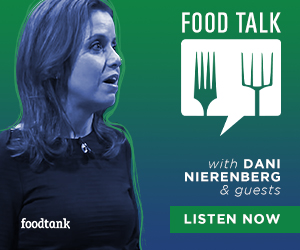By Danielle Nierenberg*
BAKU, Azerbaijan | 17 November 2024 (IDN) — We talk a lot about storytelling here at Food Tank, and for good reason: The stories we tell matter. They shape how we approach interacting with our neighbors, transforming systems, and building a better world.
The question of who tells our stories matters, too!
Here at COP29 in Azerbaijan—and also in our day-to-day food system work at home—we need to make sure that stories about the food system are being told by people within the food system, people with deeply rooted community knowledge.
Journalists need to know what farmers are facing. You can’t tell the story if you don’t understand it,” Dizzanne Billy, the Caribbean Regional Director at Climate Tracker, told us yesterday (16 November) during a roundtable at the Action on Food Hub Pavilion. “Exposure is very important for journalists, especially in the Caribbean.”
If people are unable to tell their own stories, they’ll disappear—metaphorically, yes, and also quite literally due to the climate crisis.

“There is no place to run when you’re a small island nation. If we are not here at COP, we can’t advocate for what our countries need,” Carol Franco, Agricultural Negotiator for the Dominican Republic, said during our morning breakfast discussion series at the IICA Pavilion.
At COP29, lobbyists for industries like coal, oil, and gas outnumber the size of nearly every country’s national delegations, according to The Guardian. (The only exceptions, interestingly, are Azerbaijan, Brazil, and Turkey.)
Lobbyists for carbon capture and storage, a practice that calls for trying to offset or “clean up” emissions rather than eliminating them, have particularly strong access to high-level negotiations, The Guardian also reports.
And to be clear: Shutting out industry from negotiations like this is not the solution. For better or worse, major corporations play a huge role in shaping our world—which means they can be extremely powerful when they do the right thing.
But we know that “business as usual” is broken, and those leaders and their lobbyists cannot be the ones telling the stories that’ll define our future. The stories of the future need to be directed by Indigenous folks, by farmers, by youth advocates, by women, by community organizers and local experts.
How do we turn stories into actions at COP29?
Sunday is a Rest Day here in Baku, as the first week of COP29 comes to a close and we enter the second half of the conference. And to be blunt, progress so far has not been nearly as aggressive nor visionary as we—and the planet—need.
“What I see is a lot of talk and very little action. We must face these challenges with a true sense of urgency and sincerity. We are dragging our feet as a planet,” Panama environment minister Juan Carlos Navarro told ABC News.
Of course, we know what’s needed here: Investment. Real, significant, meaningful financial investment directed to the people and places who need it most. We need to translate these stories into action, which, as panelists discussed yesterday at the Food and Ag Pavilion, takes cross-sector partnerships.
I really like the phrasing that Jack Bobo, from the University of Nottingham Food Systems Institute, used yesterday during our discussion at the IICA Pavilion: Radical collaboration.
“The problems we face are big and solutions cannot be achieved without radical collaboration,” he said. “We need to stop collaborating to take others down. We need to start collaborating to lift each other up.”
*Danielle Nierenberg, a co-founder of Food Tank, has an M.S. in Agriculture, Food, and Environment from the Tufts University Friedman School of Nutrition Science and Policy and spent two years volunteering for the Peace Corps in the Dominican Republic. She was the recipient of the 2020 Julia Child Award. [IDN-InDepthNews]
Photo: EARTH University Is Training the Next Generation of Global Food Systems Leaders. Credit: Foodtank.com


